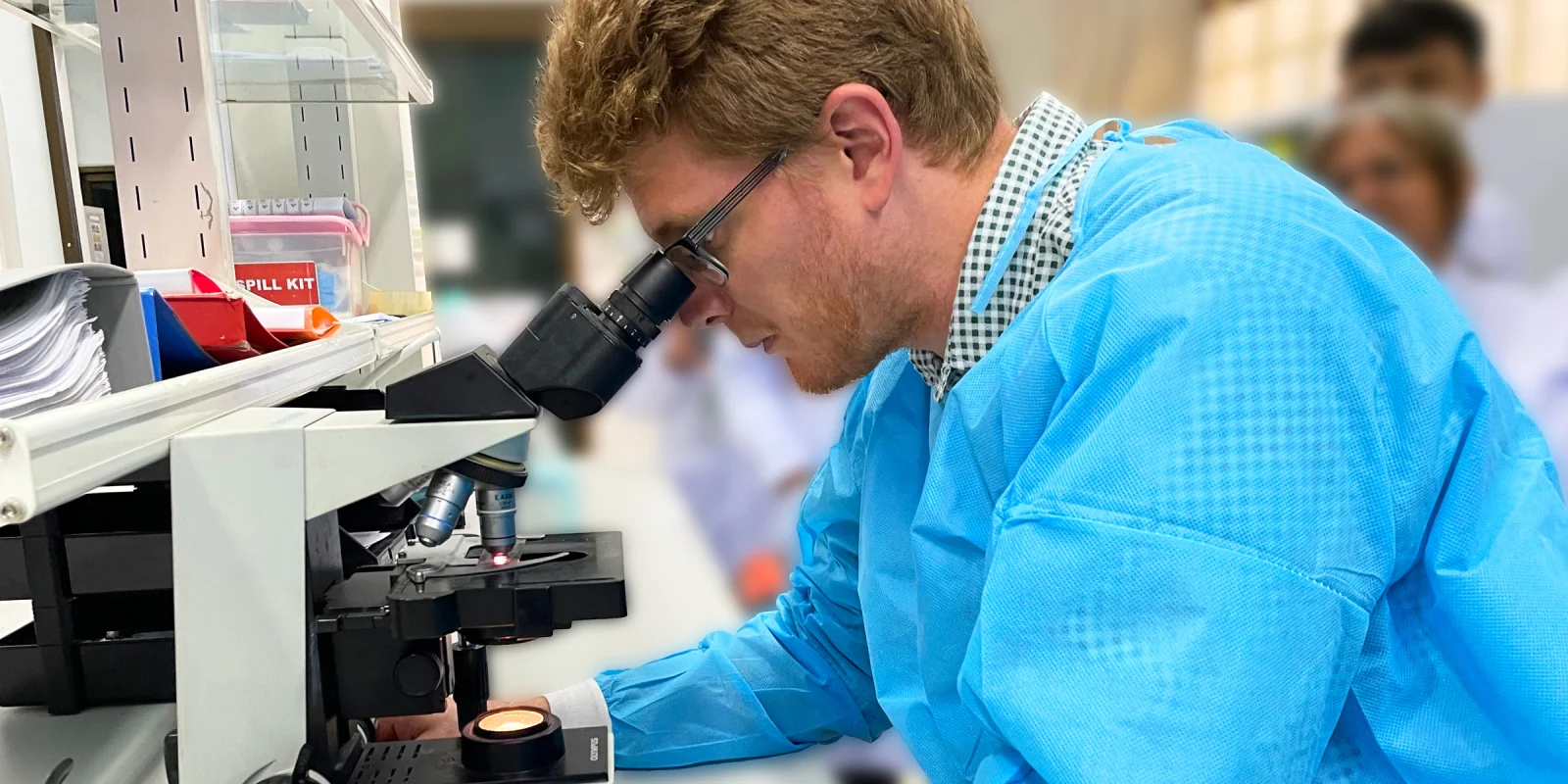Dallas Smith, PharmD
Current Role: Epidemiologist/Pharmacist
Current Research: Antifungal Stewardship
Dallas Smith, PharmD, is an epidemiologist with the Mycotic Diseases Branch in the National Center for Zoonotic and Emerging Infectious Diseases at the Centers for Disease Control and Prevention. He is a pharmacist by training, and his main research interests include dimorphic fungal diseases, fungal neglected tropical diseases, and antifungal stewardship.
Doximity: What does an average day in your life at work look like?
Smith: There isn’t really an average day for a pharmacist focusing on antifungal stewardship in the Mycotic Diseases Branch at the Centers for Disease Control and Prevention. Some days, I help lead analyses to look at barriers health facilities face in antifungal therapeutic drug monitoring and then collaborate with partners to address those identified barriers. Other days, I’m helping to lead a response to an outbreak of fungal meningitis and working with mycology infectious disease experts to update clinical recommendations based on antifungal susceptibility results.
Recently, with the emergence of antifungal-resistant ringworm in the United States, I’ve been working with clinicians (infectious disease physicians, dermatologists, pharmacists) to think through actionable steps to improve outpatient antifungal stewardship, particularly in pharmacies with over-the-counter antifungal and steroid creams.
Dox: What has been your primary motivation for pursuing public health research?
Smith: The rise of antimicrobial-resistant infections has led to suffering, morbidity, and mortality across the globe. Although the push for antimicrobial stewardship programs has been promising, antifungal medications are often slightly neglected. With the emergence of azole-resistant aspergillosis, terbinafine-resistant ringworm, and pan-resistant/echinocandin-resistant Candida auris infections, antifungal stewardship is a critical tool to save lives.
Dox: What is the most impactful lesson you’ve learned while working in this field?
Smith: Partnerships with state and local departments, health care facilities, and health providers are key to implementing and evaluating public health interventions. They are often doing the boots-on-the-ground work, and it is so important to equip them with the resources they need.
Dox: What are the top three public health events you are currently following?
Smith: 1. Influence of climate change on geographical expansion of fungi, bacteria, parasites, and viruses 2. The impact of Sudan’s civil war on public health 3. The role that test-to-treat initiatives in other pathogens (influenza, HIV-associated fungal infections, etc.) will play in public health after the COVID-19 pandemic and Paxlovid.
Dox: What would you like others to know about your work at the CDC?
Smith: Our work at CDC hinges on our relationships and connections with state and local health departments, health facilities, and local clinicians. We are always open to new ideas related to fungal diseases and are here to support those working on the ground!






